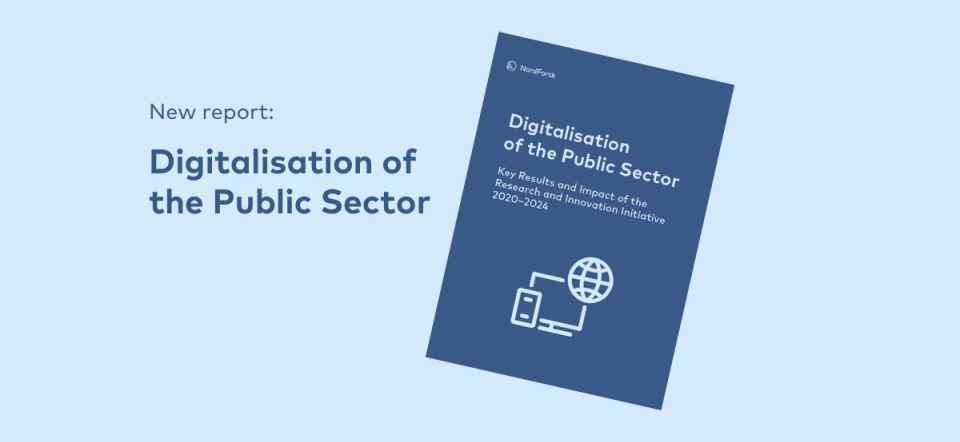The report outlines key insights from six interdisciplinary projects funded under the Nordic-Baltic-United Kingdom research and innovation initiative on digitalisation of the public sector. The six projects were supported between 2020–2024, each addressing different aspects of digital innovation in public services.
The key findings and outputs from the projects summarized in the report illustrate how digitalisation impacts society and health from different perspectives, from veterinary data management and patient access to health records to digital welfare work, libraries’ role in e-services, and citizen participation in governance and urban planning. Across the projects, a recurring theme was the need to address digital inequality, ensure responsible governance of digital systems, and support inclusive design.
“I am convinced that this collaboration has given us a deeper understanding of how to approach digital innovations in the public sector in the years to come, and we now have new knowledge on the advantages and challenges of sharing sensitive data”, writes Arne Flåøyen, director of NordForsk, in his introduction to the report.
The research and innovation initiative on digitalisation of the public sector was a collaboration between the Research Council of Norway, the Research Council of Finland, the Swedish Research Council for Health, Working Life and Welfare (Forte), the Innovation Fund Denmark, the Estonian Research Council, the Latvian Ministry for Education and Science, the Economic and Social Research Council (part of UK Research and Innovation), and NordForsk.



